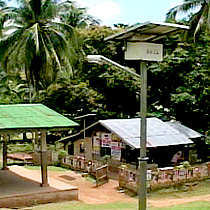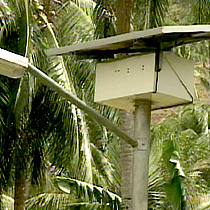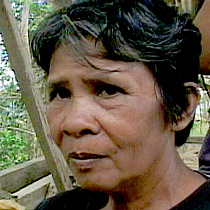2007年VOA标准英语-Solar Energy Brings Benefits to Remote Philippi
搜索关注在线英语听力室公众号:tingroom,领取免费英语资料大礼包。
(单词翻译)
By Prospero LaputZamboanga del Norte, Philippines
16 July 2007
Electricity has yet to reach hundreds of villages in the Philippines. The Philippine government is tapping innovative1 technology to light up some villages, but in this report by producer Prospero Laput from Zamboanga del Norte in the Philippines, poor villagers complain electricity remains2 out of their reach. VOA's Heda Bayron has more.
 |
| Patagan villiage |
The only road to the village is not passable when it rains. Power lines simply cannot reach the area.
Residents here thought themselves lucky in 2004 to receive a solar-powered electricity system, part of a nationwide project by the Philippine and Spanish governments.
Joelita Limbaga, a government officer who monitors the project, says children now study more, livelihood3 has improved and villagers can do some work at night.
 |
| Solar panel |
Village chief Benjamin Baynosa says they needed electric lamps.
He says they were happy to have the solar-powered light because it cannot be put out by strong winds, unlike the small kerosene4 lamps they had before.
Patagan villagers say the solar panels changed their lives. But their poverty makes it hard to maintain the panels. Most of the villagers are farmers. They earn about a dollar a day, mostly from selling coconut5 products.
 |
| A villiager |
One villager says it is difficult to keep up with the monthly payments. She says many families have given up and transferred the panels to their neighbors.
There is potential for solar power in the Philippines. But the poorest villages cannot afford to take full advantage of even this source of light and power.
 收听单词发音
收听单词发音 




